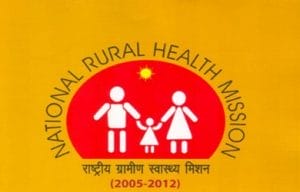
It was launched in 2005 as a seven-year programme. But with many of its goals yet to be achieved, the government may extend to 5 year more.
One of the visions of NRHM was to raise public spending on healthcare from around 0.9% in 2004-05 of India’s gross domestic product to 2-3%. But this has not been achieved.
The National Health Accounts of the health ministry says it increased from 0.84% in 2004-05 to 1.1% in 2008-09, while the Economic Survey 2009-10 put the increase from 1.19% in 2004-05 to 1.45% in 2009-10.
“There are some goals that NRHM still has not achieved, which the Centre believes can be achieved in the extended time period. So, it is thinking of extending NRHM by three years before beginning the next phase,” said the head of a non-governmental organization that works closely with the government under the programme, requesting anonymity.
Outlay for NRHM under the Union budget jumped from Rs6,730 crore in 2005-06 to Rs14,050 crore in 2009-10. But expenditure in 2009-10, until 31 January, was just Rs10,013.01 crore.
An audit by the Comptroller and Auditor General of India stressed the need to build public-private partnerships under NRHM to utilize the money better.
But the health ministry said, in a statement, that spending was poor at the local level initially due to the baggage of decades of “over-centralization”.
“In a number of states, the utilization of untied funds at the local village, sub-centre, primary health centre, community health centre-level remains slow in the initial phase. Many institution heads at these levels had lost confidence to spend as per their felt needs on account of over-centralization over the last five decades,” it stated.
But it added that the situation was improving, and a number of local-level institutions were making better use of funds.
DMAI wants the government to extend the NRHM till 2017 with radical operational changes
The Disease Management Association of India (DMAI), a non-profit organisation propagating disease management concept and tools in the country, has urged the Public Accounts Committee (PAC) of the central government to reconsider its recommendations for scrapping of National Rural Health Mission (NRHM) as the NRHM has made an impact on the lives of the rural population in the country.
The DMAI suggestion in this regard was put forth by the DMAI president and director Rajendra Pratap Gupta in a letter addressed to PAC chairman Dr Murli Manohar Joshi recently.
The NRHM was launched in the country on April 12, 2005 for a period of seven years i.e. from 2005 to 2012 for providing integrated comprehensive primary health care services, specially to the poor and vulnerable sections of the society. It means that NRHM will get expired by 2012. However, seeing its impact on the rural population, the government is thinking of a possible extension for another five years. In this regard the government had asked PAC to review the NRHM. However, in its reports the PAC has recommended on scrapping the NRHM scheme.
However Gupta suggested, “NRHM is a very useful programme and has been successful in having its presence felt even in the remote parts of the country. However, there are many radical administrative and operational changes needed to be made in the present format of NRHM.”
He suggested that with proper administrative and operational tactic, this programme certainly will have the power to create desired impact in the rural health scene. In his recommendations to the planning commission on the changes needed in NRHM for the 12th five year plan, Gupta suggested that technology must be leveraged in NRHM for accountability, transparency and telehealth and that 12th five year plan must consider opportunities to digitise NRHM in all spheres of its implementation.
He said, “There are many important changes that needs to be undertaken in the NRHM, but of all changes the first and foremost change should be to improve the quality of medicines that is being supplied at the NRHM centres. Secondly, minor surgeries are not allowed in Primary Health Centres (PHCs) as of now. This should be changed and the government must allow minor surgeries in the PHCs as it would help reduce a lot for hassles for the villagers and bring revenue for the government as well.”
Other issue that he had highlighted in the letter was on the inadequate fund flow on time which could lead to corruption among the people working at the lowest level in PHC and sub centres.
“I have met people who were not paid salary for months, and also discovered the fact that the funds that were supposed to be sent for 2010 were received by the centres in mid January 2011. Such delays must be stopped with immediate effect as this clearly will encourage and lead to corruption as people drawing a monthly salary of Rs.5000-8000 won’t be able to sustain their family without salary for months. Either they will resort to bribing, selling the government supplies or starts absconding and working for employers in parallel. Thus I suggest that the fund meant for a sub centre or PHC must be transferred in advance for the quarter if not half yearly,” Gupta points out.
He put special stress on telehealth adoption goals for NRHM and other healthcare projects, as setting up and manning the physical infrastructure with qualified professionals at remote places is nonviable. To stress the importance of telehealth adoption in the country the Telemedicine Society of India (TSI) is organising a three-day conference Telemedicon’ 11 in Mumbai from November 11 to 13. TSI is completely dedicated to the promotion of telehealth in India and is being organised at a time when there is a big push from the government and private players in the field of telehealth in India.
Source : http://pharmabiz.com/NewsDetails.aspx?aid=61977&sid=1

Be the first to comment